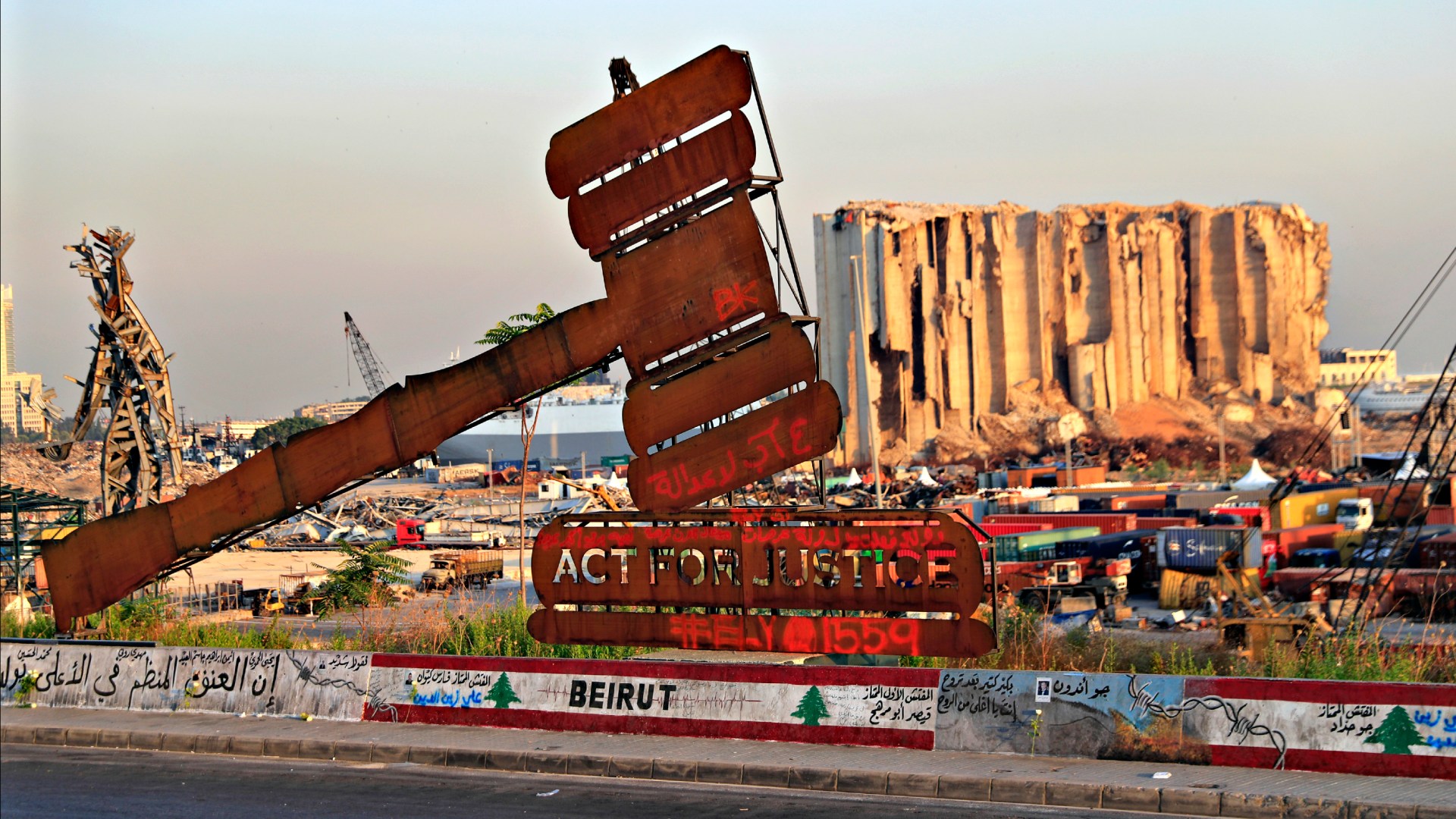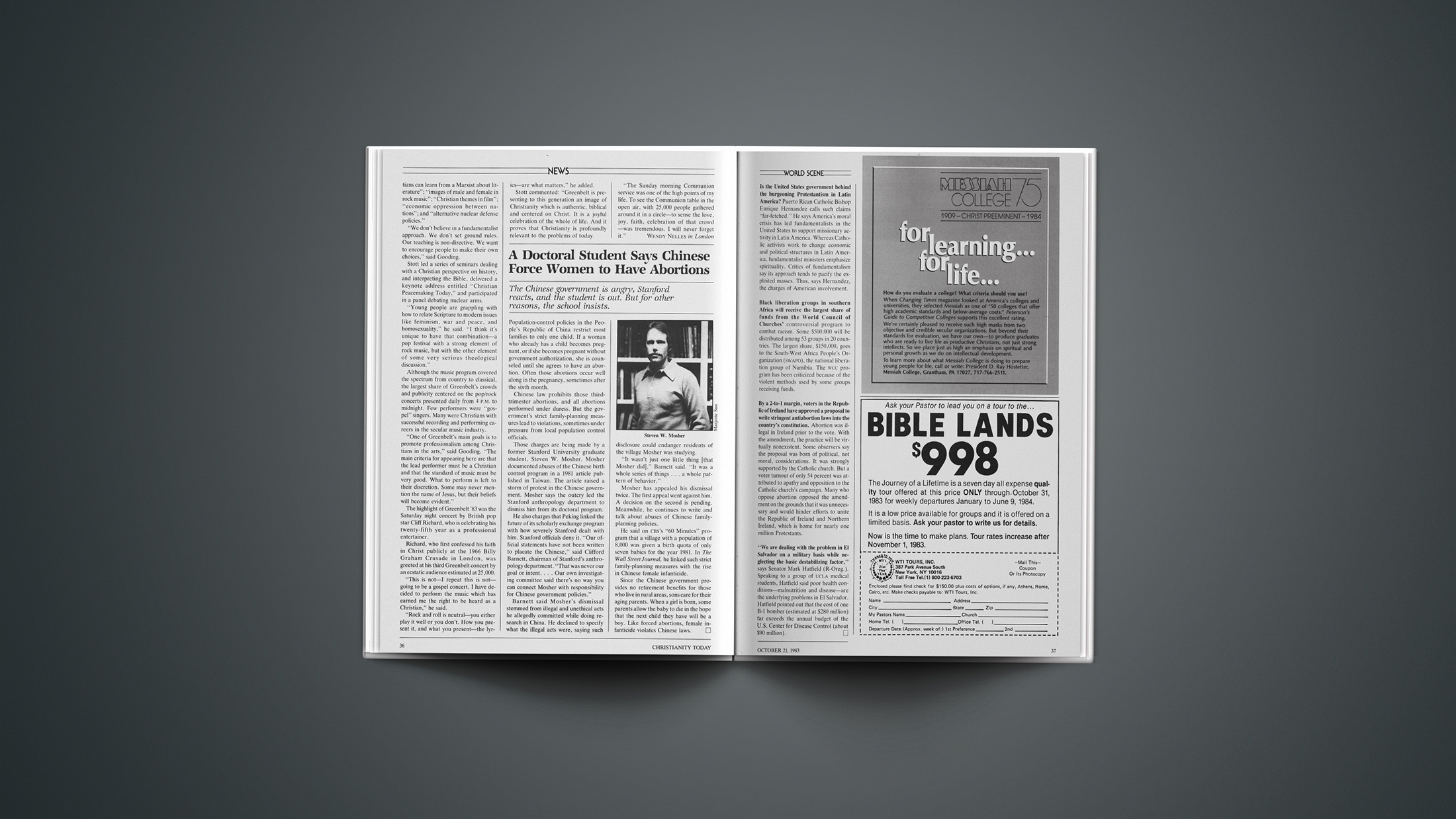Banks, businesses, and government offices were shuttered as Lebanon on Wednesday marked one year since the horrific explosion at the port of Beirut with a national day of mourning.
The grim anniversary comes amid an unprecedented economic and financial meltdown, and a political stalemate that has kept the country without a functioning government for a full year. United in grief and anger, families of the victims and other Lebanese were planning prayers and protests later in the day.
The explosion killed at least 214 people, according to official records, and injured thousands. (In May, a Christian street artist dignified the deaths with a bold illegal installation of portraits.)
It was one of the largest non-nuclear explosions in history—the result of hundreds of tons of ammonium nitrate igniting after a fire broke out. The explosion tore through the city with such force, it caused a tremor across the entire country that was heard and felt as far away as the Mediterranean island of Cyprus, more than 180 miles away.
CT reported the next day how 16 Beirut ministries described the damage, their relief efforts, and the need for a hope beyond politics. In the ensuing weeks, Lebanese evangelicals did their best to address the trauma with creative counseling. Last month, Lebanese evangelicals along with other Christian leaders traveled to the Vatican to ask Pope Francis to help restore their struggling nation.
“As we continue to demand for justice to be served, this difficult year has taught us that we should not wait to see light at the end of the tunnel but that we need to look to the light of Christ and be the light to those around us,” Nabil Costa, head of the Lebanese Society for Educational and Social Development (also known as the Lebanese Baptist Society), told CT. “It is when darkness abounds that the light of those who trust in him needs to shine ever brighter: ‘You are the light of the world. A city set on a hill cannot be hidden.’”
After the explosion, it soon emerged in documents that the highly combustible nitrates had been haphazardly stored at a port warehouse alongside other flammable material since 2014, and that multiple high-level officials over the years knew of its presence and did nothing.
A year later, there has been no accountability, and the investigation has yet to answer questions such as who ordered the shipment of the chemicals and why officials ignored repeated internal warnings of their danger.
“This is a day of pain and grief. It is the day we lost our loved ones and relatives and children. We hope all those coming down (to the streets) in solidarity with us to respect our pain,” said Ibrahim Hoteit, who lost his brother in the blast and is now a spokesman for the families fighting for accountability.
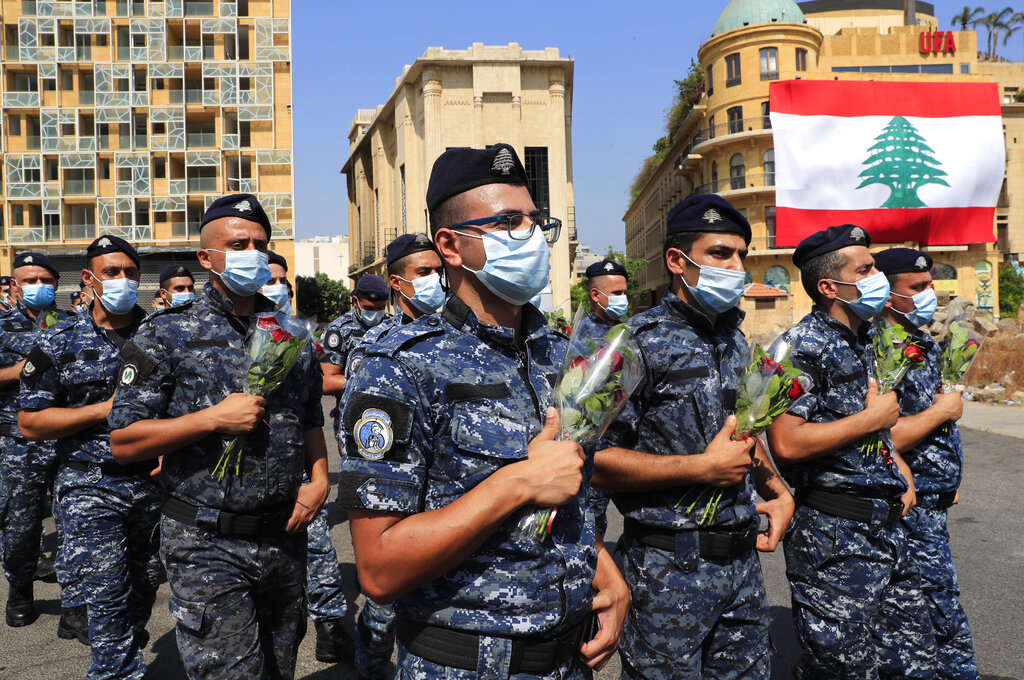
Families of the victims planned a memorial and prayers at the still wrecked site of the blast at Beirut’s port later in the day. Mass protests were also expected. A huge metal gavel with the words “Act for Justice” was placed on a wall opposite the port with its shredded grain silos, near the words “My government did this” scrawled in black.
Flags flew at half-staff over government institutions and embassies, and even medical labs and COVID-19 vaccination centers were closed to mark the day. Reflecting the raw anger at the country’s ruling class, posters assailing authorities were hung on the facades of defaced buildings across from the port.
“Here starts your end and our beginning,” read one poster that took up the space of five floors of a high-rise. “Hostages of a murderous state,” read another.
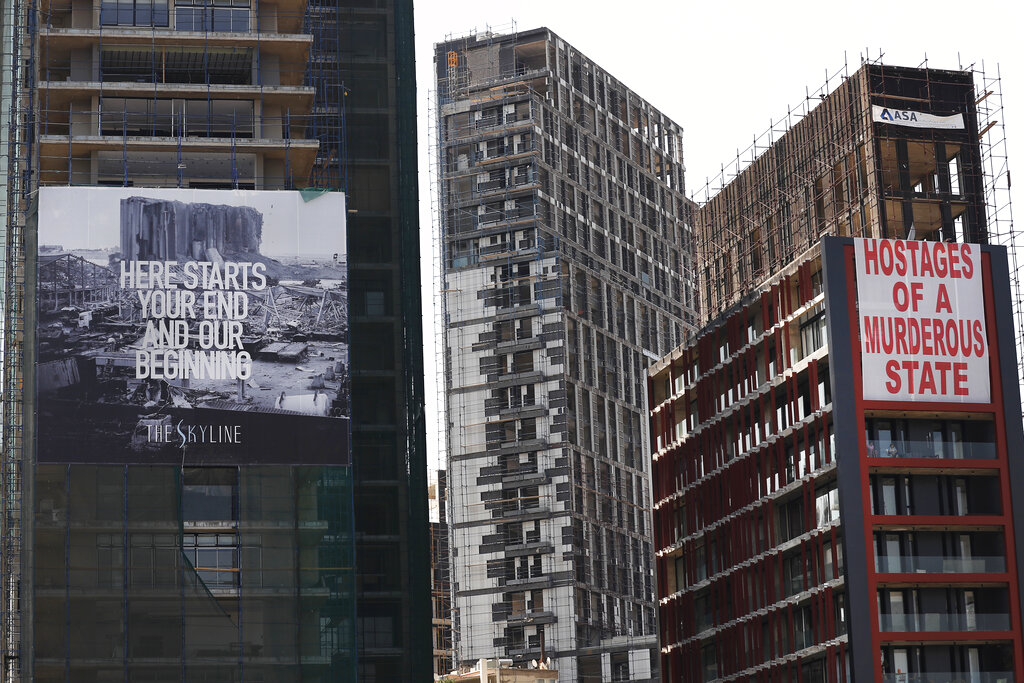
The blast, coupled with the devastating economic crisis, political stalemate, and rising poverty, have posed the gravest threat to the small country’s stability since its 1975–90 civil war.
In a statement Wednesday afternoon, the Lebanese army said it arrested a number of people who were on their way to take part in anniversary commemorations, saying they had a large number of weapons and ammunition in their possession.
In an extensive investigative report, Human Rights Watch (HRW) on Tuesday called for an international probe into the port blast, accusing Lebanese authorities of trying to thwart the investigation. HRW said a lack of judicial independence, constitution-imposed immunity for high-level officials, and a range of procedural and systemic flaws in the domestic investigation rendered it “incapable of credibly delivering justice.”
“Since the 1960s we have not seen an official behind bars," said Pierre Gemayel, whose brother Yakoub was killed in his apartment in the explosion.
Taking part in a small protest outside the justice palace Wednesday, he said the refusal by the political class to lift immunity from senior officials accused of negligence that led to the blast is “proof of their collusion.”
The explosion—which destroyed and damaged thousands of homes and businesses—and the lack of accountability, have added to the deep political and sectarian divisions, tensions, and anguish in a country reeling from multiple crises, including an economic unraveling so severe it has been described by the World Bank as one of the worst in the last 150 years.
The crisis has led to a dramatic currency crash and hyperinflation, plunging more than half of the country’s population below the poverty line. Among the many tragic impacts: Lebanon’s evangelical and Catholic schools—renowned for teaching Muslim and Christian students alike—can barely pay teachers and keep classes open.
However, the international community has refused to help Lebanon financially before wide reforms are implemented to fight widespread corruption and mismanagement.
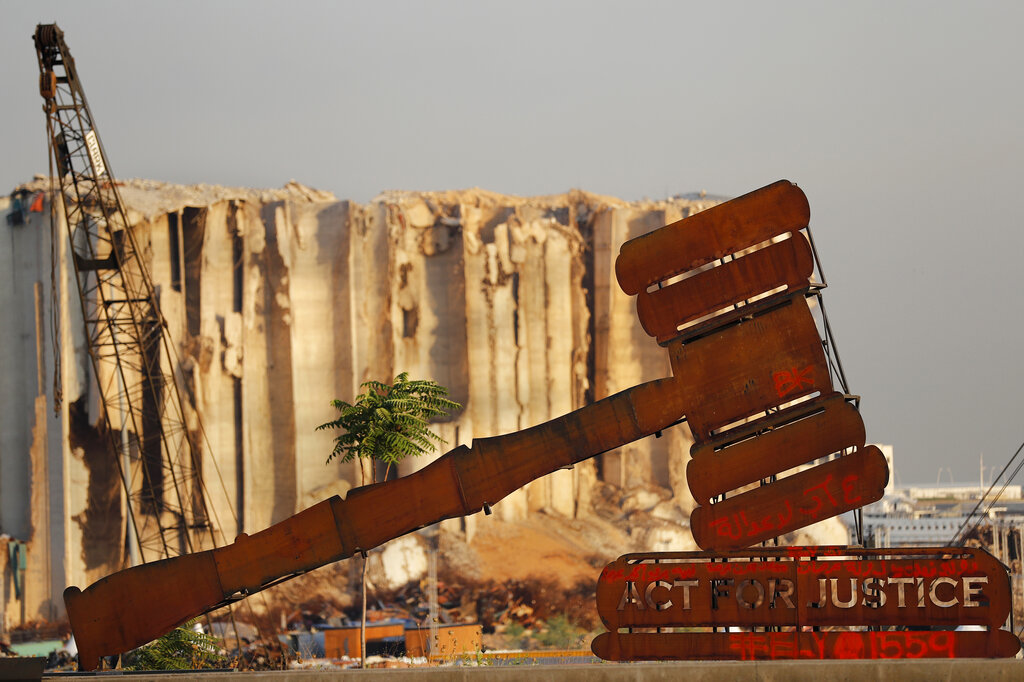
Meanwhile, about 40 heads of states and government, diplomats, and heads of international organizations were taking part in a conference co-hosted by France and the United Nations on Wednesday, hoping to raise hundreds of millions of dollars in aid to meet Lebanon’s growing humanitarian needs.
French President Emmanuel Macron said the virtual event is meant to show support for the Lebanese people—not authorities—and pledged France would provide 100 millions euros ($118.6 million) in the coming months.
At the Vatican, Pope Francis recalled the suffering of the Lebanese people, as he held his first weekly audience with the public since surgery a month ago.
“A year after the terrible explosion in the port of Beirut, Lebanon’s capital, that caused death and destruction, my thoughts go to that dear country, above all to the victims, to their families,’’ the pontiff said.
“And so many lost the illusion of living,’’ he added.
After the explosion, CT visited the damaged National Evangelical Church of Beirut and interviewed pastor Habib Badr on the perspective of the oldest Arabic-speaking Protestant congregation in the Middle East:
“If I didn’t have hope, I would leave,” said Badr, surveying the state of his nation, post-explosion. “Unlike Sodom and Gomorrah, there are enough good people in Lebanon for God to spare it from destruction.”
But his reflection was broken by a phone call. Yet another former member reached out from the diaspora, expressing grief and asking how to help. It is a cycle in Lebanon: Beirut gets destroyed, then rebuilt again. The National Evangelical Church is just one of many phoenix-like symbols.
But its particular endurance points to an even greater reality.
“The church is a beacon of hope and light in Jesus Christ,” said Badr, “in the middle of a city that is broken, in need of the Word of God.”
The areas nearest the port were primarily poorer Christian neighborhoods and the damage exacerbated fears of a mass migration of Christians from Lebanon, Joseph Kassab, president of the Supreme Council of the Evangelical Community in Syria and Lebanon, told CT from Beirut the day after the 2020 blast.
“But this is an opportunity to sharpen our calling and live our ministry,” he said. “We have to help people with their needs and lessen the damages suffered by the Christian community.
“In the midst of such pain, we need to become a better church,” Kassab told CT. “We are not called to sit in the pews, but to witness for Christ and work for the kingdom of God.”
Associated Press writers Bassem Mroue and Sarah El Deeb in Beirut, Frances D'Emilio in Rome, and Sylvie Corbet in Paris contributed reporting. Additional reporting by CT.

